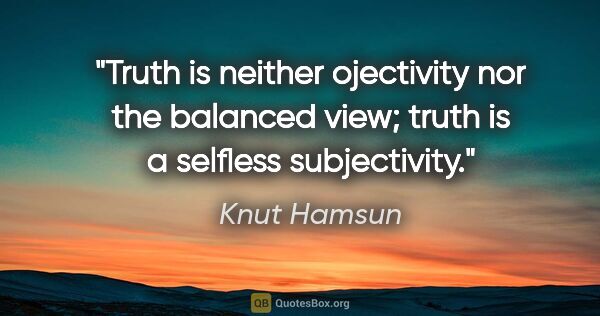Subjection Quotes (page 20)
Angel Bob: Doctor? Excuse me, hello, Doctor? Angel Bob here, sir. The Doctor: Ah, there you are, Angel Bob. How's life? Sorry, bad subject. Angel Bob: The Angels are wondering what you hope to achieve. The Doctor: Achieve? We're not achieving anything. We're just hanging, it's nice in here: consoles; comfy chairs; a forest... how's things with you? Angel Bob: The Angels are feasting, sir. Soon we will be able to absorb enough power to consume this vessel, this world, and all the stars and...
Steven Moffat
I have never been able to understand the complaint that a story is "depressing" because of its subject matter. What depresses me are stories that don't seem to know these things go on, or hide them in resolute chipperness; "witty stories," in which every problem is the occasion for a joke; "upbeat" stories that flog you with transcendence. Please. We're grown ups now.
Tobias Wolff
However inadequate our ideas of causal efficacy may be, we are less wide of the mark when we say that our ideas and feelings have it, than the Automatists are when they say they haven’t it. As in the night all cats are gray, so in the darkness of metaphysical criticism all causes are obscure. But one has no right to pull the pall over the psychic half of the subject only . . . whilst in the same breath one dogmatizes about material causation as if Hume, Kant, and Lotze had never been born.
William James
A ruler who discerning justice refuseth to it the sanction of law, demanding abnegation of rights and self-sacrifice, will not drive his subjects to these virtues, virtuous only if free, but by unnaturally making justice unlawful, will drive them rather to rebellion against all law.
J. R. R. Tolkien
The straightforward manner is seldom equal to the complications of the good subject. There may never be anything new to say, but there is always a new way to say it, and since, in art, the way of saying a thing becomes a part of what is said, every work of art is unique and requires fresh attention.
Flannery O'Connor
Reading a book should be a conversation between you and the author. Presumably he knows more about the subject than you do; if not, you probably should not be bothering with his book. But understanding is a two-way operation; the learner has to question himself and question the teacher, once he understands what the teacher is saying. Marking a book is literally an expression of your differences or your agreements with the author. It is the highest respect you can pay him.
Mortimer Adler
Speak," he urged. "What about, sir?" "Whatever you like. I leave both the choice of subject and the manner of treating it entirely to yourself." Accordingly I sat and said nothing. "If he expects me to talk, for the mere sake of talking and showing off, he will find he has addressed himself to the wrong person," I thought.
Charlotte Bronte
And now an hour, maybe, has passed. And they are both drunk: Kenny fairly, George very. But George is drunk in a good way, and one that he seldom achieves. He tries to describe to himself what this kind of drunkenness is like. Well - to put it very crudely - it's like Plato; it's a dialogue. A dialogue between two people. Yes, but not a Platonic dialogue in the hair-splitting, word-twisting, one-up-to-me sense; not a mock-humble bitching match; not a debate on some dreary set theme. You can...
Christopher Isherwood

